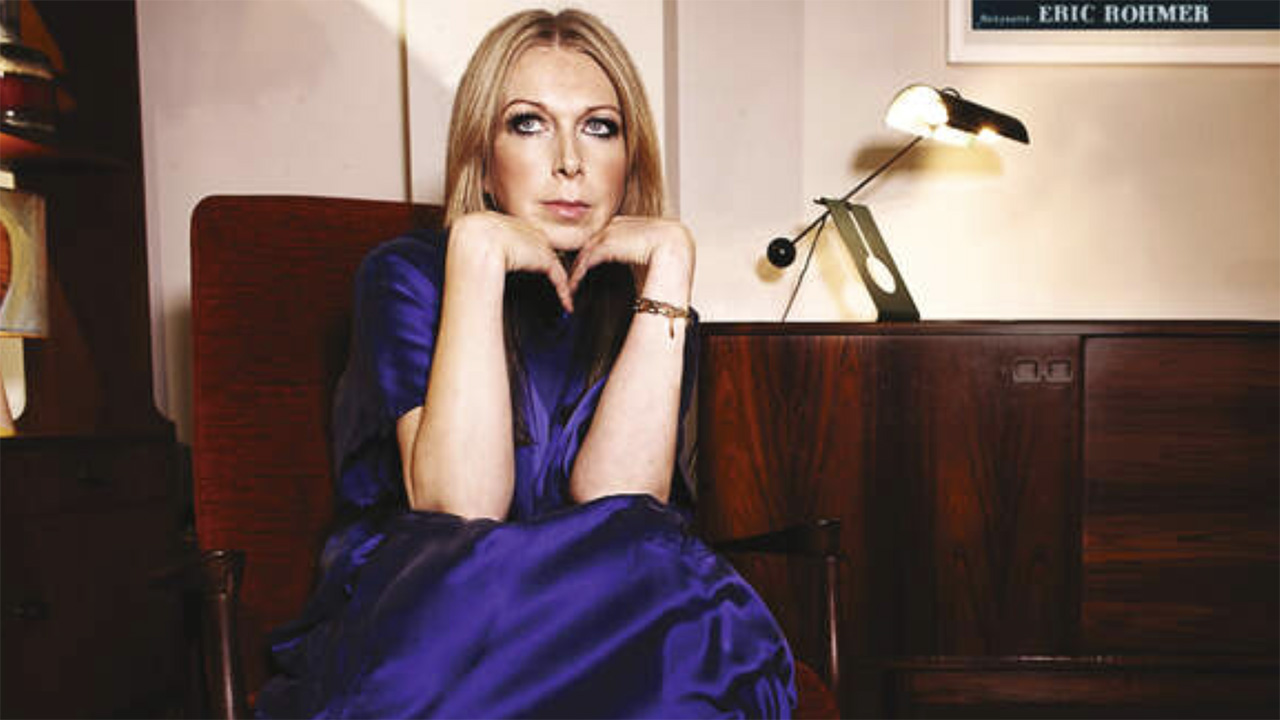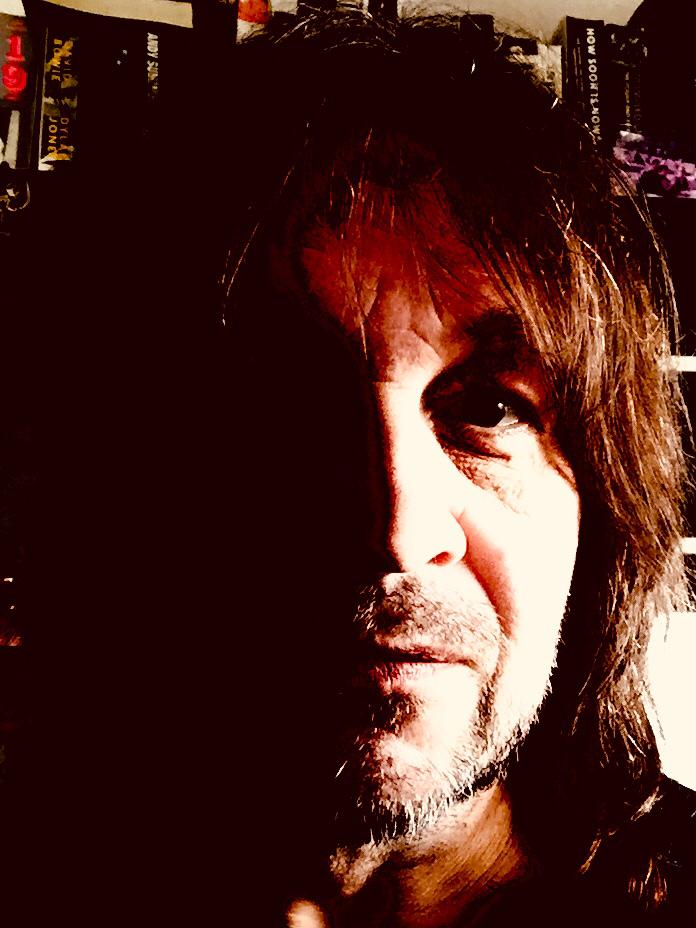Jane Weaver mixed things up on her dreamy new album, Love In Constant Spectacle. She devised a modern approach to the cut-up technique of lyric-writing, and travelled to Rockfield Studios to record with a producer for the first time. She’s never had so much to do – but, as she tells Prog, she’s happy with that result.
Those lesser talents who hitched their horses to the psychedelic bandwagon of the last decade might be feeling the strain after just a few releases, but Jane Weaver is showing absolutely no signs of losing any interest in her art. Indeed, she’s now reached the point where her music is instantly recognisable thanks to an ever-evolving solo career that stretches back to the start of the millennium.
Her fusion of hauntology via vintage analogue synths, with a love of pop’s melodicism at its most insistent and the more psychedelic end of krautrock, all garnished with mysticism and the occult, has ensured a steady of stream of releases that could be by no one else but Jane Weaver. Hell’s teeth, she could be a genre of her own.
And, while it would be easy for Weaver to stay in the comfort zone of her Mancunian base and immediate creative circle, complacency hasn’t been an option. Looking back at her more immediate trail of releases, forward has been the only way to go in the composition and creation of her latest album, Love In Constant Spectacle.
“I wanted to do something a little bit different,” she tells Prog. “I think with this record, for instance, it’s not particularly conceptual, like some of the other albums. The Silver Globe was conceptual and Modern Kosmology was inspired by [pioneering Swedish abstract artist] Hilma af Klint. The Fallen By Watch Bird [in 2010] was when I started getting more experimental and started exploring Germanic fairy tales and folklore and stuff like that. Flock was a bit more immediate, because it was a collection of pop songs that were back to back. For this one, it’s a little bit more heavy, mellow and downbeat. And a little bit more honest, maybe.”
She’s not wrong. Love In Constant Spectacle is a beautifully layered album that reveals more of itself with each subsequent listen. What becomes apparent as the pumping synths usher in opener Perfect Storm is that Weaver is moving at a more considered pace, and that there’s a story to be told. ‘Don’t blame me/It’s the universe that’s wrong,’ she laments with no little chutzpah on the delicate Univers, before giving way to a shimmering coda that tugs at the heartstrings. Elsewhere, in the spacious surroundings of the title track where her voice trades moves with punctuating instrumentation, she sighs, ‘I won’t hear when you call me.’
“I guess it’s more personal, but I didn’t want to do something directly personal,” she says. “I tend to write about different characters, so it feels like it’s not really about me. This is more of an emotional, in-touch record.”
By her own admission, that approach is a defence mechanism that’s at odds with the prevailing mode for confessional and revealing posts on any number of social media platforms. “Everybody’s exposing their lives online and discussing everything about themselves,” says Weaver. “I don’t particularly feel comfortable doing that.”
Her solution to this particular conundrum has been twofold. From a lyrical standpoint, she’s employed a new approach to her writing that’s seen her using not only the cut-up lyric technique – pioneered by artist Brion Gysin and beat author William S Burroughs, and used to stunning effect by David Bowie in his 70s heyday – but also by harnessing the random effects of sending phrases backwards and forwards through Google Translate.
“I think I actually wrote more words for this record than ever, and came away with more simple terms for everything,” she says. “I didn’t want to do something too wrapped up in so many concepts and metaphors. I just wanted to do something quite simple, and come away with something that was quite easily translated. I was doing a lot of cut and paste stuff, – mixing stuff around to make it different and then re-translating in different languages, and coming away with different things.
I don’t like to commit myself until the very last minute… it was different having a deadline
“Doing that took a lot longer to come up with something that was a lot simpler. It really kind of reduced what I was trying to say, but then I did want it to be more like little vignettes from films where you have a little meme and subtitles underneath.”
And how does she view the results? “Sometimes the poetry is really beautiful. Sometimes when you flick something to, like, Eastern European and then back again, you think, ‘My God, it sounds much better!’”
As for the album’s sonic approach, Weaver felt it best to bring in outside assistance to challenge and aid her while ceding a degree of the creative decision making. Fulfilling a long-standing ambition, she secured the services of in-demand producer John Parish – arguably best known for his work with PJ Harvey. Understanding the ramifications of a limited work time, Weaver recognised she would only get out of the partnership what she put in.
“Normally I produce stuff in a studio around the corner from my house over a period of two or three years, but this was entirely different production-wise, because there was a lot of preparing to do,” she recalls. With just two weeks booked in the bucolic environs of the storied Rockfield Studios in Monmouthshire, and a further five days marked for mixing at Bristol’s Invada Studios, Weaver says she found the looming deadlines – coupled with Parish ensuring that they were met – to be productive rather than pressured.
I needed somebody who I could look up to and just go, ‘I trust that person’s decision’
“I never finish my words until the very last minute because I want to hear what the music’s like first,” she says. “I’m going into the studio with 1,000 sheets of paper, knowing that we’ve only got so many weeks in Rockfield and then so many wherever else... I’m normally more laissez-faire, so having to get all that together was quite hard.
“And then John would say, ‘Have you finished the lyrics to this one?’ I’d be like, ‘Nearly! I’ve just done the lyrics, but I just need to put them in order!’ I don’t like to commit myself until the very last minute. I’m always like that, but it was different having a deadline.”
For all the pressure experienced by Weaver, her guitarist Joel Nicholson, bassist Matt Grayson and drummer Andrew Cheetham, she’s still full of praise about Parish. “That’s the thing about working with John – he’s very experienced as a musician, as a writer and as a producer. I needed somebody who I could look up to and just go, ‘I trust that person’s decision.’ He’d say, ‘That sounds a bit pub-rock, that,’ and I’d go, ‘Really?’ And then you’d just simplify everything.”
Working within a framework of time restraints has certainly left its mark. “There are certain things I like about working like that, because it’s very disciplined,” she says. “It’s good to experience going into a great studio like Rockfield, but I couldn’t afford to go in there for, like, three months. Working with John is just really good, rather than me running the session and using the studio as a tool to do a lot of collage work. It was just really nice that somebody else was making the decisions.”
Some of the themes are drawn out of people that I knew, who were quite hedonistic and maybe took things too far
Coupled with themes of mortality and fragility, the overall effect and mood of Love In Constant Spectacle is what she categorises as “heavy mellow” – a dichotomy that finds the intent of serious subject matter blended with an aural balm.
“Quite a lot of people passed away over the last four years or so. Some of the themes are drawn out of people that I knew, who were quite hedonistic and maybe took things too far. They weren’t necessarily into music or doing music; they were just people I might have known from back in the day. when they succumb to illness or alcoholism or drug problems, you just think, ‘How did that happen?’ Because we’re all on the same page and it’s just so random, isn’t it?”
Some passings have been closer to home, however. “Unfortunately my dad was quite poorly and died last year,” she says. “And a lot of people have this – not just with elderly parents, but living alongside something or somebody who’s quite poorly. And you think, ‘Which is best – being in anticipatory grief or somebody just dropping dead?’ You don’t know, because they’re both horrible things. But I would say anticipatory grief just walks with you all the time. That kind of influenced how I was thinking about some stuff; it’s more downbeat, more heavy mellow. And that’s why I was trying to search for joy in certain pockets of places.”
I want to be a better musician, a better guitarist and a better keyboard player
To coincide with the release of Love In Constant Spectacle, she embarked on a spring tour – her largest to date. “Touring is really important,” she states. “I want to be a better musician, I want to be a better guitarist and I want to be a better keyboard player. I don’t get anything out of it if I’m just kind of doing karaoke every night. I’d rather be more involved. I just want to get back to doing that.”
A handful of European shows have already been booked for the autumn, so it looks like busy times ahead. “I’m feeling happy,” Weaver says. “There’s so much to do, though: you’ve got to rehearse, you’ve got to do your pre-production for live rehearsals, and then decide what it’ll look like with the visuals and the stage show. So all that kind of stuff and then actually doing a tour, it’s really exciting.”





